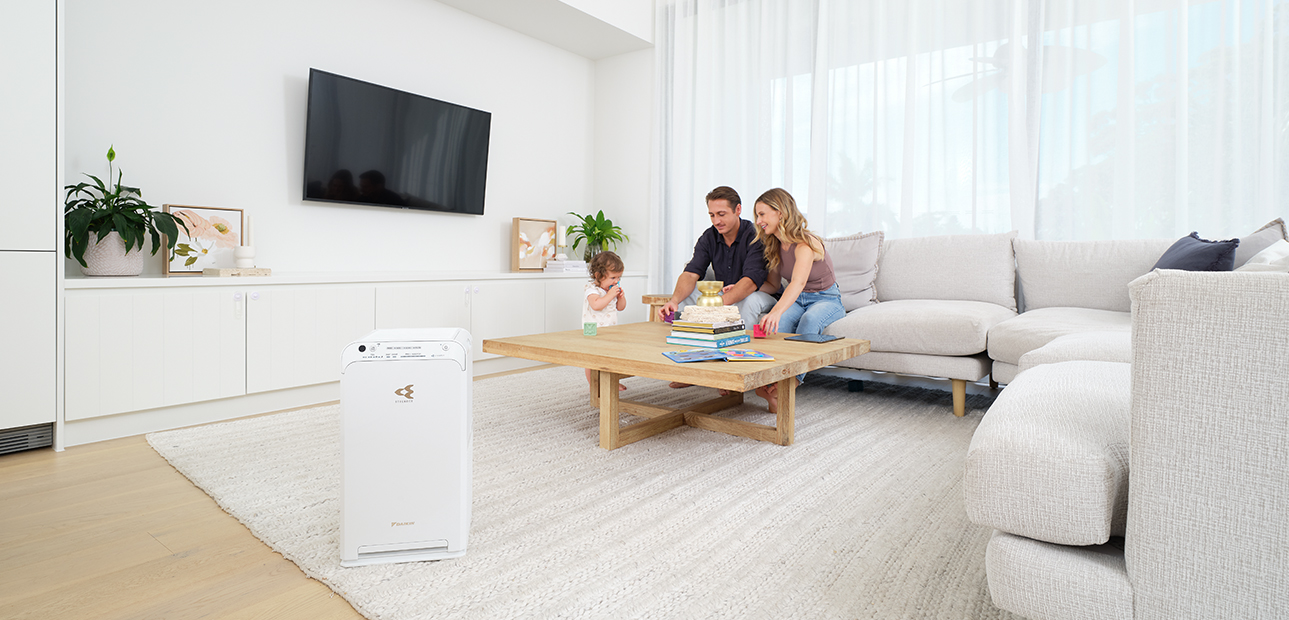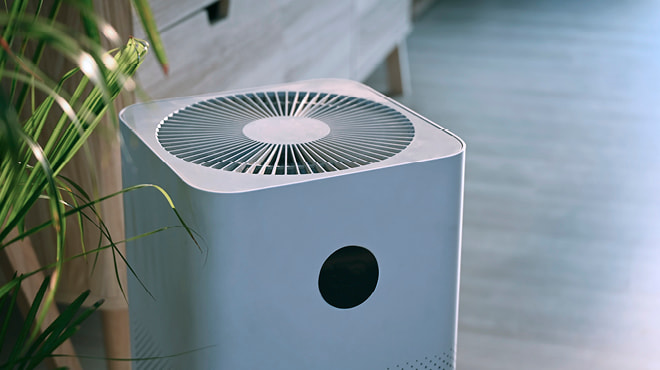Featured
Table of Contents
- – Recognizing Allergic Reactions and Triggers
- – Can Air Purifiers Aid With Allergies?
- – The Science Behind Air Purifiers and Allergies
- – Are Air Purifiers Right for You? Aspects to C...
- – Taking advantage of Air Purifiers for Allergies
- – Beyond Air Purifiers: A Multi-Pronged Techniqu...
- – Living a Breath Easier Life with Allergies

Air purifiers are often promoted as an option, encouraging cleaner air and relief from allergic reaction signs and symptoms. Are air cleansers absolutely worth the investment for allergy sufferers?
Recognizing Allergic Reactions and Triggers
To understand the duty of air purifiers, let's very first look into allergic reactions and their triggers:
- The Sensitive Response: Allergies happen when your immune system overreacts to a harmless compound, like plant pollen or allergen. This response triggers the launch of histamines, causing allergy symptoms like sneezing, coughing, scratchy eyes, and a dripping nose.
- Common Allergens: Indoor irritants include allergen, family pet dander, mold and mildew spores, plant pollen that drifts indoors, and also cockroach allergens. These air-borne particles can aggravate your respiratory tracts and cause allergic reaction symptoms.
Can Air Purifiers Aid With Allergies?
Air purifiers function by attracting air, filtering system out toxins, and releasing cleaner air back right into the area. Right here's just how they can possibly benefit allergy sufferers:
- Trapping Allergens: HEPA (High-Efficiency Particulate Air) filters, a common type used in air cleansers, are highly efficient at catching air-borne allergens like dust mites, pet dander, and plant pollen. By eliminating these triggers from the air you take a breath, air purifiers can help in reducing allergic reaction signs.
- Improved Air High Quality: Air cleansers can also remove other toxic irritants from the air, such as smoke, dust, and unstable organic substances (VOCs) This overall improvement in air quality can be useful for allergy victims that are sensitive to these additional triggers.
The Science Behind Air Purifiers and Allergies
Research studies have revealed that air purifiers can be valuable in lowering allergy signs. Below's a take a look at some vital research study findings:
- A 2019 review published in the journal "Present Allergy and Asthma Records" concluded that air purifiers with HEPA filters can be reliable in decreasing allergy signs and symptoms and boosting quality of life for people with hay fever (hay fever)
- A 2018 research study released in the journal "Annals of Allergic Reaction, Asthma & Immunology" located that utilizing an air purifier with a HEPA filter in the room considerably lowered dirt mite allergen degrees and boosted sleep top quality in individuals with bronchial asthma.
Nevertheless, it is essential to note that research study likewise suggests some constraints:
- Air Purifier Coverage: Air purifiers are most reliable in the area where they are put. Their influence on allergens in other parts of your home could be marginal.
- Severity of Allergies: While air cleansers can help, they might not be a complete remedy for serious allergic reactions. Medications and other allergic reaction management techniques may still be necessary.
Are Air Purifiers Right for You? Aspects to Consider
Below are some crucial factors to think about when making a decision if an air purifier is worth it for your allergies:
- Extent of Allergies: If your allergies are moderate and well-controlled with medicine, an air purifier might not be essential. Nonetheless, for those with modest to severe allergic reactions, an air purifier can be a beneficial device in managing symptoms.
- Kinds of Allergens: Think about the primary triggers for your allergies. Air purifiers are most effective for airborne irritants like dust mites, pet dander, and plant pollen. They might not be as handy for irritants like mold and mildew that grow on surface areas.
- Way of life and Environment: If you have pets, stay in an area with high plant pollen counts, or have problems about interior air high quality, an air purifier can be useful.

Taking advantage of Air Purifiers for Allergies
If you determine to purchase an air purifier for allergies, right here are some suggestions for optimizing its performance:
- Pick a HEPA Filter: Search for an air purifier with a HEPA filter licensed to catch fragments as little as 0.3 microns.
- Right Size for the Area: Make certain the air purifier has a Clean Air Distribution Price (CADR) that is ideal for the dimension of the room you intend to utilize it in.
- Placement Issues: Put the air purifier in the space where you spend one of the most time, such as your bed room.
- Routine Filter Upkeep: Replace HEPA filters according to the manufacturer's directions to preserve ideal performance.
- Combine with Various Other Techniques: Air purifiers are not a one-size-fits-all remedy. Combine them with other allergy administration methods like medication, normal cleansing, and allergen-proof bed linen.
Beyond Air Purifiers: A Multi-Pronged Technique to Allergic Reaction Monitoring
:max_bytes(150000):strip_icc()/spr-primary-hwortock-001-e165b9a055e14512abf7a52884cd6b86.jpeg)
While air cleansers can be a beneficial tool in your allergy arsenal, they are not a magic bullet (If you're looking to buy an Air Purifier then Air Cleaners Australia is the best destination.). A thorough method that combines air purification with other strategies is crucial to accomplishing long-lasting allergy relief. Below are some added approaches to think about:
- Medication: Antihistamines, decongestants, and nasal corticosteroids, recommended by your doctor, can successfully manage allergy signs and symptoms.
- Allergic Reaction Screening and Immunotherapy: Recognizing your specific allergens with allergy testing can lead the way for immunotherapy, a treatment that assists desensitize your immune system to allergens gradually.
- Air High Quality Administration: Normal cleaning with a HEPA-filtered hoover and allergen-specific cleansing items can significantly reduce dust termites, pet dander, and various other irritants in your house.
- Controlling Humidity: Mold thrives in moist atmospheres. Using a dehumidifier can help manage humidity degrees and stop mold growth, an usual interior allergen.
- Way of living Adjustments: If you have hatreds plant pollen, remaining inside during optimal pollen seasons and bathing after spending time outdoors can assist minimize exposure.
- Bed linens and Surfaces: Framing cushions and mattresses in allergen-proof covers can dramatically reduce allergen direct exposure. Frequently cleaning bed linen in hot water assists get rid of irritants.
Living a Breath Easier Life with Allergies
Bear in mind, managing allergies is a continuous procedure. By understanding your triggers, executing a multi-pronged strategy, and potentially integrating an air purifier right into your strategy, you can substantially lower allergy signs and symptoms and breathe less complicated.
Additional Considerations:
- Consulting a Medical professional: If your allergic reactions are extreme or not well-controlled with medicine and way of life modifications, seek advice from a specialist for customized suggestions.
- Air High Quality Surveillance: Think about using an air top quality monitor to track irritant degrees in your house and readjust your monitoring methods accordingly.
- Long-Term Financial investment: A good top quality air purifier can be a long-lasting financial investment in your health and wellness and well-being.
By taking a positive method and taking on a mix of these methods, you can create a much healthier and allergy-friendly atmosphere, permitting you to appreciate a breath simpler life.
Table of Contents
- – Recognizing Allergic Reactions and Triggers
- – Can Air Purifiers Aid With Allergies?
- – The Science Behind Air Purifiers and Allergies
- – Are Air Purifiers Right for You? Aspects to C...
- – Taking advantage of Air Purifiers for Allergies
- – Beyond Air Purifiers: A Multi-Pronged Techniqu...
- – Living a Breath Easier Life with Allergies
Latest Posts
Understanding the Transition: Why sydney is Phasing Out Gas
Understanding the Transition: Why Roseville is Phasing Out Gas
Things about Can You Dishwash Your Yeti Rambler With Confidence?
More
Latest Posts
Understanding the Transition: Why sydney is Phasing Out Gas
Understanding the Transition: Why Roseville is Phasing Out Gas
Things about Can You Dishwash Your Yeti Rambler With Confidence?